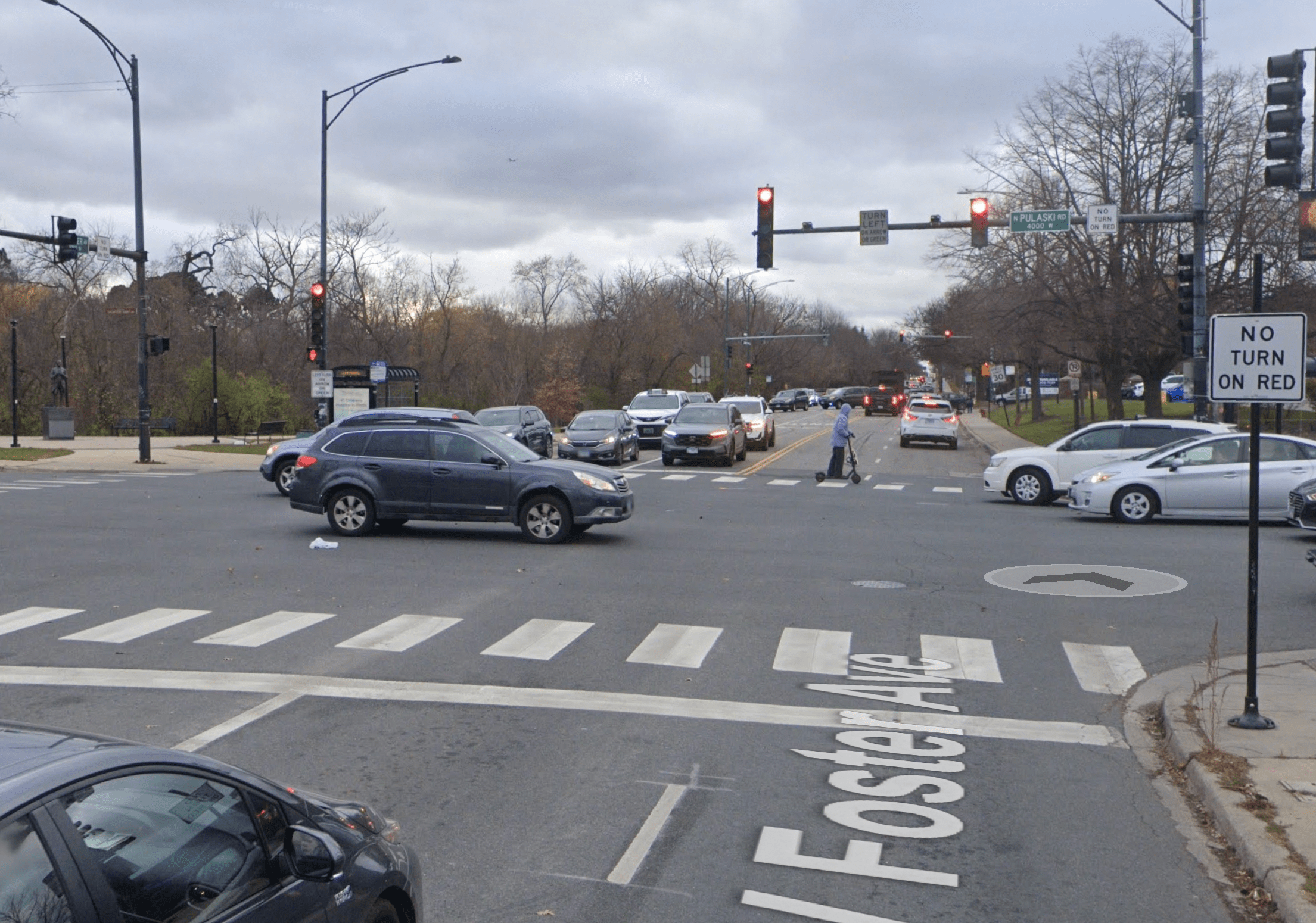
At last week's CTA board meeting, the directors approved a $1.99 billion operations budget for 2024 with no fare hikes. And at the meeting president Dorval Carter Jr. told the directors he believes bus and train operator recruitment will be so successful the agency will restore service “almost” to pre-pandemic levels sometime next year.
Carter said that, while the hiring has taken longer than he’d like, especially on the rail side, recruitment is going in the right direction. He also pushed back on criticism that the CTA wasn’t hiring enough train operators to keep pace with operators retiring, quitting, or transferring to other positions. He said operating a train is inherently more complex than driving a bus, so it takes longer to train new rail operators.
Later in the meeting the CTA board unanimously agreed to double the funding for outreach services to unhoused individuals sheltering on the Blue and Red lines. A year ago, the board approved an agreement for the agency to chip in $2 million to the Department of Family and Support Services to contract Thresholds and Haymarket Center to do outreach on the Red Line and part of the Blue Line, respectively. Effective from the beginning of 2024, the new contract will allow the nonprofits to send out more outreach workers, and allow Haymarket to expand service to the entire Blue Line.
Carter’s comments
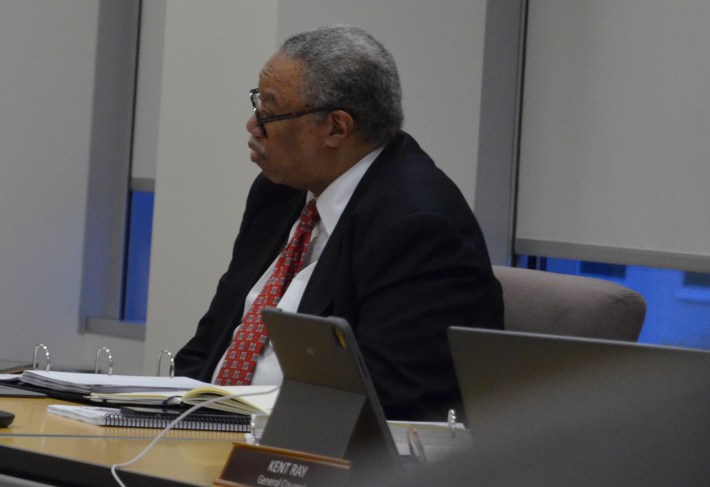
In August 2022, Carter released its Meeting the Moment plan to improve service reliability, which suffered due to staff shortages. The percentage of scheduled runs delivered on time since then has improved. Bur the grassroots advocacy group Commuters Take Action has noted that framing is deceptive. It's the result of the CTA quietly reducing the number of scheduled runs (which the agency euphemistically described as “schedule optimization”), which made on-time performance an easier goal to meet.
According to CTA’s Meeting the Moment dashboard, the agency saw net gains of 11 rail operators in September and 19 in October. This was an improvement from the past few months, when the net gain was either smaller or completely flat.
At last week's meeting, Carter said that operating a train is harder than driving the bus, since train engineers have to navigate the rails, switches and signal systems. He added that operator training has been hampered by the fact that rail supervisors are the ones doing the teaching.
“I was able to move people through the bus training much faster than the rail,” Carter said. “On the rail side, I not only have to deal with the hiring aspects, but also deal with the demand that’s being placed on the same group of instructors.”
Carter added that while “there's no one who wants to get the service levels back more than me,” he was “not about to risk the safety of people riding the CTA just to put someone in the seat.”
He said that he believes the hiring trends are heading in the right direction. “We look at the ways to be innovative and creative, but we're going to do it in a safe manner,” he said. “And at the end of the day, it is my belief that we will be able to restore the service, not just on bus but on rail, to where we were before.”
Later during the meeting, Carter complained that, while air travelers accepted all kinds of adjustments to flying post-COVID, “when it comes to public transportation, everybody wants to complain why you weren't doing things the way you’ve done before.”
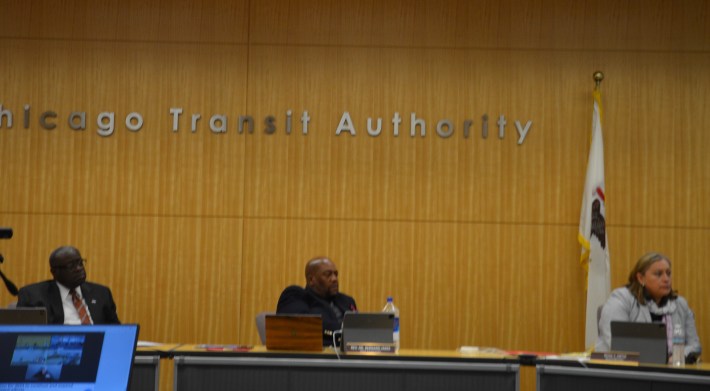
Board chair Lester Barclay, who tends to defend Carter and argue that media coverage has been unfair to him, voiced support this time around as well. “Your comment about safety, making sure that people are well-trained, because something happens on these trains as we rush this process – there's not one board member here who wants you to rush the process,” he said. “We want to safeguard the public and I appreciate your approach to it.”
However, Commuters Take Action's Brandon McFadden argued in a Streetsblog guest op-ed last month that while Carter paints the CTA's poor service as part of a nationwide problem, it's not even a region-wide problem. "While Metra and Pace have had their own hurdles to jump over, they took action early on in the pandemic. Both agencies adjusted or reduced schedules early and operated smaller fleets. As ridership recovery has continued, they have increased frequency or added new service in line with the changing dynamic in ridership trends. But the CTA is an agency stuck in old habits."
Homeless outreach expansion
Both Thresholds and Haymarket Center primarily provide treatment for substance use disorder and mental health issues. Since the start of this year, Thresholds has been covering the Red Line. Haymarket Center has served the Blue Line between the O’Hare station and the UIC-Halsted stop. Thresholds doing outreach even before the 2022 agreement, but the infusion of funding allowed them to add a shift.
The new contract doubles the CTA funding from $2 million to $4 million, which will most notably allow Haymarket to expand service father west on the Blue Line to the Forest Park station.
This is separate from an earlier CTA agreement with the Chicago Department of Public Health, which has a contract with the Night Ministry to provide services at the Red, Purple, and Yellow lines' Howard Street terminal and the Forest Park stop.
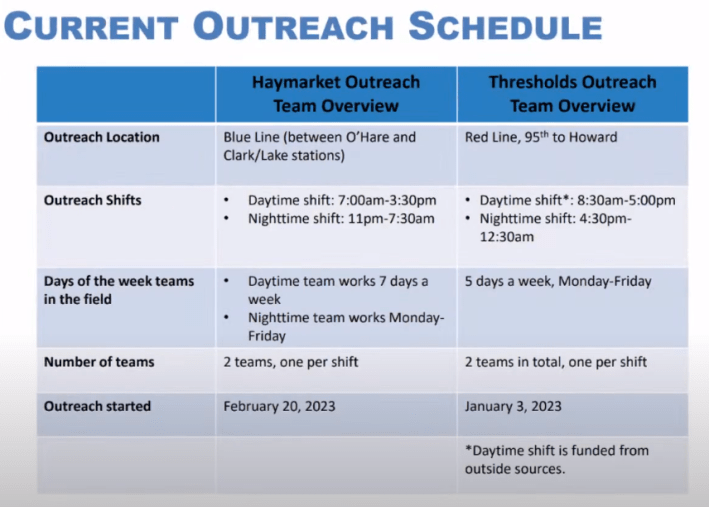
Tom McKone, CTA’s chief administrative Officer, told the board that each provider sends out teams of 4-5 people. Both send out one team per shift, with night shifts working during weeknights. While Haymarket does day shifts seven days a week, Thresholds only does day shift on weekdays. The new contract will allow Thresholds to expand the overnight shift to seven days a week.
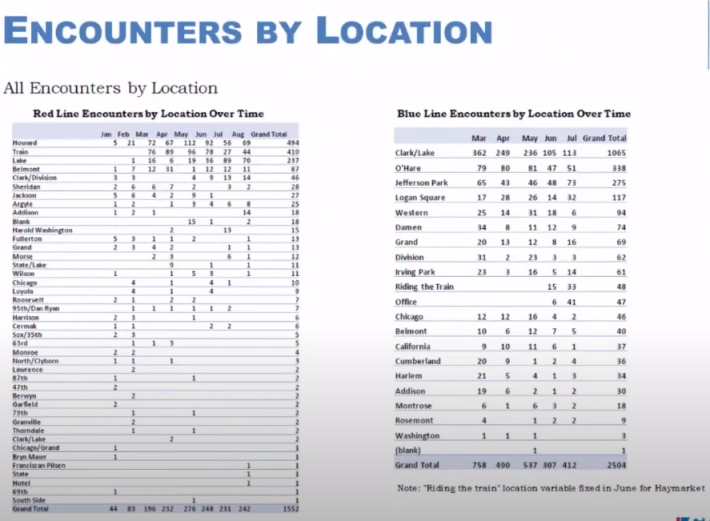
McKone said outreach workers from Thresholds and Haymarket “ride the trains, get off at various stations” and “look to engage with individuals experiencing homelessness.” They start out simply talking to unhoused individuals, asking them if they are interested in food, hygiene supplies, or harm reduction materials such as drug testing strips.
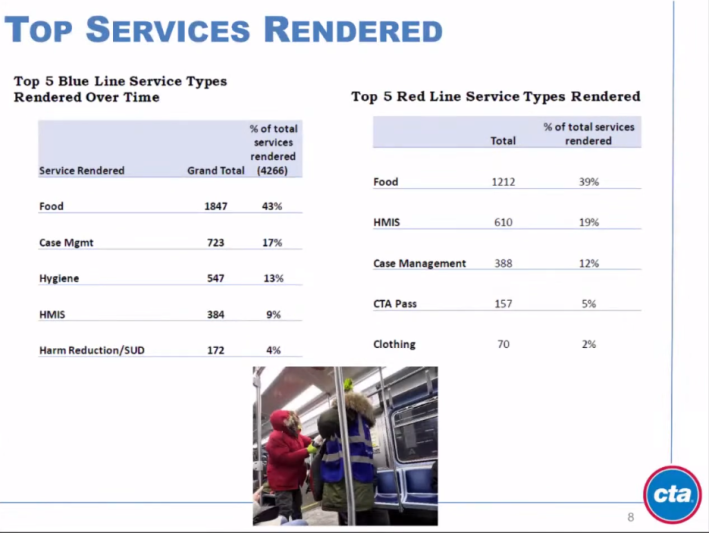
Getting them health services and moving them into shelters is a more complex process, McKone said. The unhoused individuals have to want to stay at the shelter, and if they do, the outreach workers are limited by how much space is available. Beyond that, the goal is to get unhoused individuals into permanent, stable housing.

The statistics shared in McKone’s presentation show that's easier said than done. According to the 2023 Point in Time Count, the annual survey of homeless people conducted in Chicago in January, 546 unhoused people were sheltering on the CTA. Threshold and Haymarket outreach workers report that 80 people were placed in shelters. Out of 236 people who signed up to get more permanent housing through the city’s Coordinated Entry System, only 24 have been placed, and five people were in the midst of the placement process at the time.
Still, McKone touted the success stories, mentioning a man who has been sheltering on the Red Line and got housing and treatment for untreated mental illness. “He [told us] recently that he was about to start a new job,” he said. “His job happened to be on the CTA, at the Second Chance program. It really shows the unique nexus the CTA has, and how we can be part of the solution as well.”
During the public comment period, Sam Guardino, Thresholds’ homeless outreach program director, said that the funding has been a “gamechanger,” and CTA has been a good partner.
Jeffrey Collord, Haymarket’s vice president of operations, offered a similar sentiment.“We’re fortunate to partner with the passionate staff of Thresholds, and the passionate staff of DFSS.”
Watch the full Chicago Transit Board meeting here.

Did you appreciate this post? Please consider making a tax-deductible donation.


